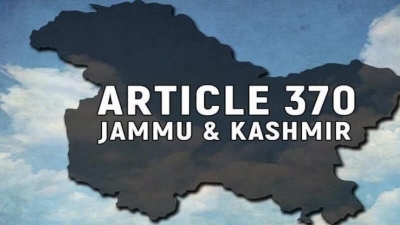
It’s been a year since the BJP-led government in India revoked Article 370 on august 5, 2019, stripping the erstwhile State of Jammu and Kashmir of autonomy which it had enjoyed for seven decades. Do you know what Article 370 means?
Its significance
Article 370 accorded special status to the then State of J&K in accordance with the terms spelt out by Hari Singh, the ruler of the princely state with a majority Muslim population, following its accession to the Indian Union. Included in the Indian Constitution on October 17, 1949, Article 370 was meant to be temporary in nature. It allowed the State autonomy to draft its own Constitution, make laws and enjoy special rights. In other words, J&K citizens lived under a separate set of laws, including those related to citizenship, ownership of property and fundamental rights. So, Indians from outside the state were barred from purchasing property or settling there.
Why was it revoked?
Article 370 was revoked with the objective of boosting the development of the region and maintaining law and order. Revoking Article 370 was in the BJP’s 2019 election manifesto. So, when the party returned to power in the 2019 general elections, the Article was revoked and the Central government bifurcated the State into two Union Territories of J&K and Ladakh. The Union Territory of J&K has a legislature where key subjects such as law and order are with the Centre, while that of Ladakh has no legislature. Following the scrapping of Article 370, an uneasy calm prevailed in the Valley with restrictions on public movement and communication network. Several Kashmiri leaders, including former Chief Ministers, were put under house arrest. The restrictions triggered unprecedented international response. Though there are arguments for and against the abrogation of article 370, it is the people of the region who continue to suffer.
Dispute over Kashmir
Kashmir is a region of contention between India and Pakistan. Once a princely state called Jammu and Kashmir, it joined India in 1947 following the Partition (when the subcontinent was divided up) at the end of British rule. India and Pakistan waged was over it in 1965 with both ending up controlling different parts of the territory. There had been violence in J&K for over three decades due to a separatist insurgency against Indian rule.
One year on…
On August 5 this year, the one question that remained unanswered was whether the abrogation of article 370 has benefited the region or not. While the Ministry of Home Affairs has said that several developmental projects are underway, terror-related activities have dipped and job opportunities for youth have opened up, the crumbling economy, the deep social and psychological impact of curbs imposed on civilians, crackdown against any form of dissent and looming questions about human right violations paint a contrary picture.
Picture Credit : Google

